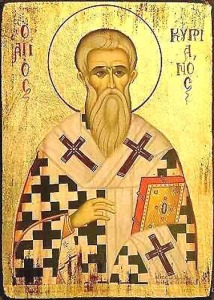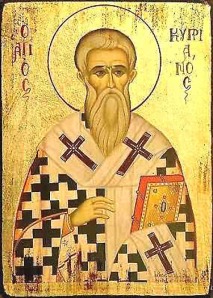 Patience is the wholesome precept of our Lord and Master:
Patience is the wholesome precept of our Lord and Master:
“He that endureth,” saith He, “unto the end, the same shall be saved” (Matt. 10:22);
and again, “If ye continue,” saith He, “in my word, ye shall be truly my disciples; and ye shall know the truth, and the truth shall make you free” (John 8:31-32).
We must endure and persevere, beloved brethren, in order that, being admitted to the hope of truth and liberty, we may attain to the truth and liberty itself; for that very fact that we are Christians is the substance of faith and hope.
But that hope and faith may attain to their result, there is need of patience. For we are not following after present glory, but future, according to what Paul the apostle also warns us, and says,
“We are saved by hope; but hope that is seen is not hope: for what a man seeth, why doth he hope for? But if we hope for that which we see not, then do we by patience wait for it” (Rom. 8:24-25).
Therefore, waiting and patience are needful, that we may fulfil that which we have begun to be, and may receive that which we believe and hope for, according to God’s own showing.
Moreover, in another place, the same apostle instructs the righteous and the doers of good works, and them who lay up for themselves treasures in heaven with the increase of the divine usury, that they also should be patient; and teaches them, saying,
“Therefore, while we have time, let us labour in that which is good unto all men, but especially to them who are of the household of faith. But let us not faint in well-doing, for in its season we shall reap” (Gal. 6:10-9).
He admonishes that no man should impatiently faint in his labour, that none should be either called off or overcome by temptations and desist in the midst of the praise and in the way of glory…; as it is written, “Hold that which thou hast, that another take not thy crown” (Rev. 3:11).
Which word exhorts us to persevere with patience and courage, so that he who strives towards the crown with the praise now near at hand, may be crowned by the continuance of patience.
But patience, beloved brethren, not only keeps watch over what is good, but it also repels what is evil. In harmony with the Holy Spirit, and associated with what is heavenly and divine, it struggles with the defence of its strength against the deeds of the flesh and the body, wherewith the soul is assaulted and taken.
Cyprian of Carthage (d.258): On the Advantage of Patience, 13-14.









